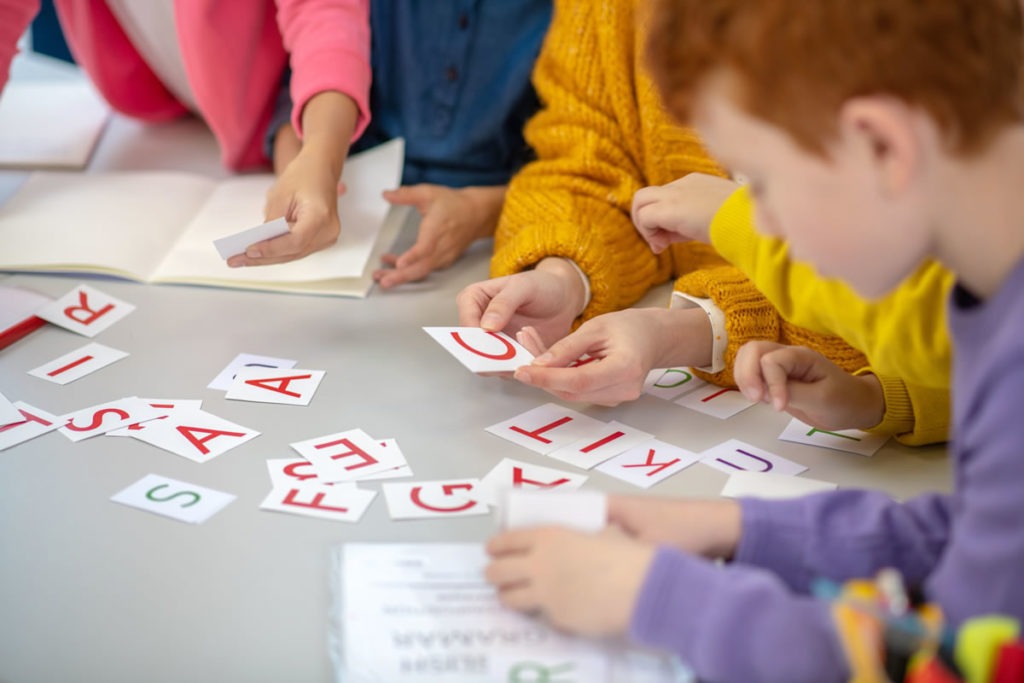Many children finish school still with an inappropriate or insufficient vocabulary for their age, and this should make us reflect on whether we are working on it correctly. Fortunately, helping children to improve and work their vocabulary is simple and possible not only at school, but also at home, and can be achieved by following a series of recommendations that we will talk about below.

We must bear in mind that if a vocabulary is too limited or insufficient, this lack can lead to serious learning, understanding and communication problems in the future, so it would be good to tackle the problem in time. And it is that vocabulary is important for many reasons and, among them, that children need to understand a wide range of words to be successful in reading and in their school development. And vocabulary is not only important in the classroom, because the truth is that words enable children to make sense of the world around them, so a wide vocabulary may be necessary so that they can learn to express their emotions with words, to socialize with people, to imagine or dream without limits.
How we can help improve the vocabulary of the little ones
- He speaks a lot and with correction
Young children are like sponges, so it is important to immerse them in language early on. Also, the number of words children learn in the early years is closely related to their future success. At the same time, the quality of relationships and interactions between parents and children is also one of the most important factors that can influence vocabulary, so it is vital to always speak with children correctly , showing them different words (without infantilizing them ) even if you don’t understand them yet. Children always have a receptive vocabulary that is broader than expressive vocabulary, that is, they understand more words than they can use. This means that there is no need to oversimplify the way you talk to children. Try at home to name objects, use number words or introduce those that explain emotions… How many more words they understand, the more they can use!
- Read a few moments together
One of the most important keys to having a wide vocabulary is to instill a love of reading , so it is vital to make it a routine, with a space and / or a specific moment in which to practice every day. But do not resort only to school books and look for interests in your little ones to be able to find interesting books that relate to them, as this will encourage them to read for pleasure more and more. Don’t forget to read aloud to your children, even when they are already able to read it on their own. Don’t forget that children love listening to stories, and you can build their vocabulary by choosing books or making up stories that are still too difficult to choose voluntarily. Also talking about what is being read will help to increase the level of understanding of the little ones and their level of vocabulary.
- Use stickers around the house
Use sticky notes to label objects around the house, as this will help children learn to read new words more easily. As they get older, you can add adjectives to the labels, such as “wooden table,” to further expand their vocabulary level.
- Play simple word games
There are a wide variety of word games that can help children learn new words. And is that making learning language and words part of a game is really useful, because it makes it interactive, fun and much more interesting for the little ones.

- Use new words in sentences
It makes no sense for a child to learn new words if they don’t know how to use them, so having them use a word in a spoken or written sentence will help them understand its meaning and context. In some homework or free time, ask the kids (according to their level) to write a sentence that includes each new word that comes to mind, once explained, and encourage them to look it up in the dictionary if they are still not sure about it. its meaning. Knowing how to use a thesaurus will increase children’s vocabulary and improve the quality of their written work, so show them how to use it and encourage them to keep it handy when they are writing. You can also try introducing a new word every day and so… you will increase your vocabulary by 365 words every year!
- Teaches to write for pleasure
Children are sometimes prevented from writing for pleasure, usually by pretending that they always write about things they are not interested in at school. You can try to counteract this by encouraging your little ones to write for pleasure on whatever topic they are excited about. Of course, do not correct their writing, since it is about learning first to enjoy the exercise of writing . Children who enjoy writing are believed to be seven times more likely to write at an age-appropriate level as time goes on.
- Create a wall or word album
This is a great way to help new words travel through a child’s brain . Write each new word they learn on a strip of paper and post it on their bedroom wall in a nice word wall. If you don’t want to do this on the wall, you can always create beautiful craft albums or notebooks where the same type of activity can be done.
Positive reinforcement helps children learn, so create an environment where vocabulary is a priority and of real relevance in your day to day life. The more enjoyable the experience of learning vocabulary, the more prepared children will be to learn it.











































































































